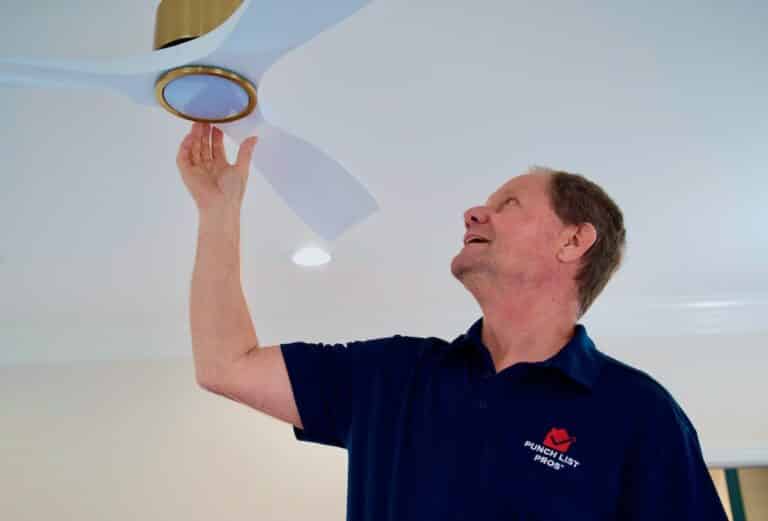Electrical Handyman Services for Safe, Stylish Living
- Fixing Homes in South Carolina for a Decade
- Local, Licensed, and Insured
- We Get It Done—Fast
Fast, Reliable Electrical Help for Small Jobs – No Overpriced Electricians Needed
You don’t always need a licensed electrician to install a dimmer or replace a fixture—just a skilled, trusted pro who can get the job done right. At Punch List Pros, our electrical handyman services cover the small-to-midsize projects that make your home safer, brighter, and more functional.
From accent lighting and smart dimmers to outlet swaps and tech setups, we’re your go-to team for clean, quick, and code-conscious electrical work.

What We Handle (No Permits or Panel Work Required)
Here’s what our electrical handyman team does best:
Light Fixture Installation and Repair
Replace or repair ceiling, wall, pendant, and vanity lights with clean, secure installs.
Accent Lighting Installation and Replacement
Enhance ambiance with LED strips, over-cabinet lights, and targeted lighting upgrades.
Cabinet Lighting Installation and Replacement
Add energy-efficient under-cabinet lighting for kitchens, workspaces, or displays.
Ceiling Fan Installation
Install or replace ceiling fans—with or without light kits—for better airflow and comfort.
Light Dimmer Switch Installation and Service
Install smart or traditional dimmers to control brightness and extend bulb life.
Outlet & Switch Repairs
Replace standard or GFCI outlets, update toggles, or fix faulty switches.
Motion Sensor Installation and Service
Boost safety and convenience with indoor or outdoor motion-activated lighting.
Light Sensor Installation and Service
Install dusk-to-dawn photocell sensors for porches, garages, and security lights.
Recessed Lighting Installation and Service
Add modern recessed lighting to brighten kitchens, hallways, or finished basements.
Track Lighting Installation and Replacement
Install or update directional lights perfect for kitchens, offices, or galleries.
Holiday Light Installation Services
Safely hang and remove exterior holiday lights with care and precision.
Energy-Efficient Lighting Replacement and Retrofit
Upgrade bulbs or fixtures to LED, helping cut costs and boost efficiency.
Deck and Patio Lighting Installation and Service
Add or repair outdoor lighting for decks, patios, and walkways—low-voltage and weather-safe.
Appliance & Home Technology Setup
Help setting up TVs, smart plugs, basic devices, or home assistant systems (non-wired).
Why Choose Punch List Pros for Electrical Handyman Services
We’re the bright idea behind better-functioning homes.
- Safety-first approach for every install
- Fast fixes with clean finishes
- Flexible scheduling and upfront pricing
- Focused on lights, switches, and smart upgrades—no permits or rewiring
- Fully backed by our 100% satisfaction guarantee
Who We Help
- Homeowners upgrading without rewiring
- Seniors increasing lighting and safety
- New homeowners handling inspection punch lists
- Families adding convenience and automation
- Renters or property managers fixing non-structural electrical issues
Common Bundled Services
You can check off multiple items in one visit—efficient and budget-friendly.
- Ceiling fan + light fixture replacement
- Recessed lighting + dimmer install
- Cabinet lighting + outlet upgrade
- Holiday lights + motion sensor installs

In need of a Full Service Electrician?
Whole-home rewires, back up generators, panel upgrades? Check out our sister company, Sunrise Electric Co. for larger electrical work performed by professional electricians.

Book Your Electrical Handyman Services Today
Let’s light things up—safely and stylishly. Schedule your electrical handyman services with Punch List Pros and get everything wired, working, and wow-worthy.
